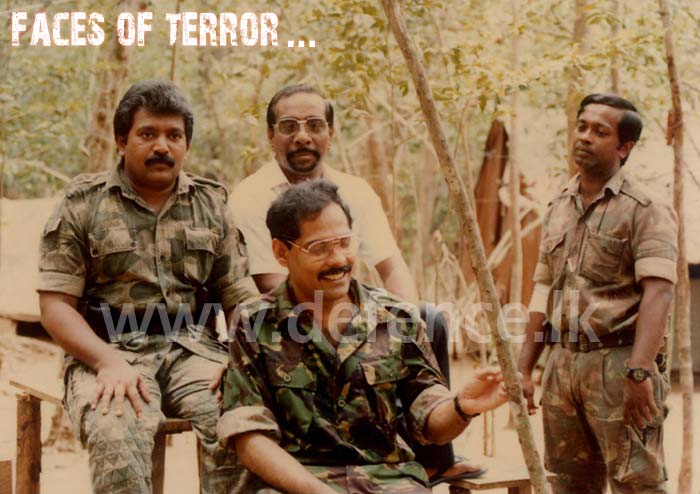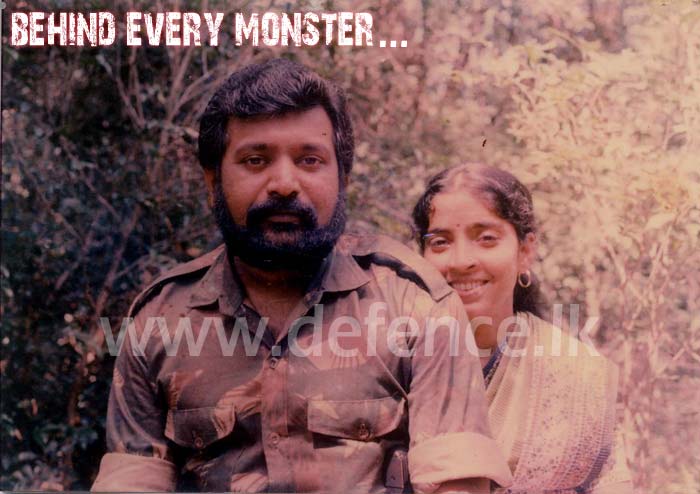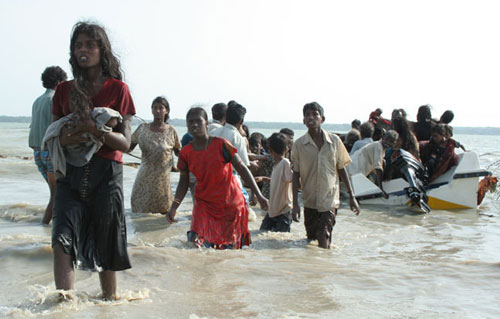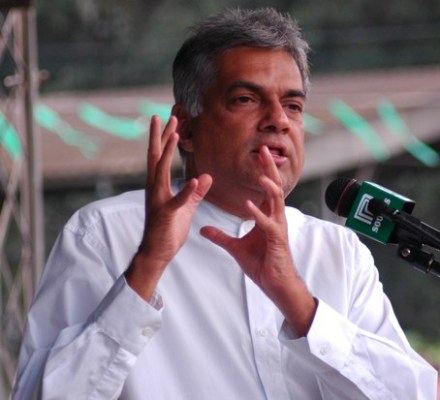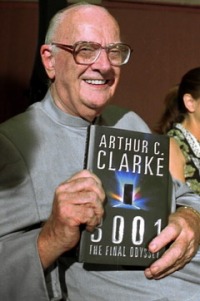(2009 අප්රේල් මස 16 වැනිදා “ලංකාදීප” පුවත්පතේ පළවූ උපුල් ජෝශප් ප්රනාන්දුගේ “ගුරුදා විග්රහය” ලිපිය)
බැරි වෙලාවත් ප්රභාකරන්ට මොනවා හරි වුණොත් ප්රභාකරන්ගෙන් පසු එල්.ටී.ටී.ඊ සංවිධානය ඉස්සරහට අරගෙන යා යුතු ආකාරය ගැන ජාත්යන්තර කොටි ජාලය තුළ දැනටමත් සාකච්ඡා ආරම්භ කොට ඇත. මෙම සාකච්ඡාවලදී ගැමෝම කතාබහ කරන මාතෘකාවක් වී ඇතැයි කියන්නේ 2005 ජනාධිපතිවරණයේ දී රනිල් පරද්දන්න ප්රභාකරන් ගත්ත තීරණයයි.
“එතැන ලොකු වැරැද්දක් කර ගත්තා නේද…?”
සමහරු එහෙම අහද්දී කොටි ජාලයට සමීප සම්බන්ධකම් ඇති අය ඉදිරිපත් කරනවාය කියන්නේ වෙන විග්රහයකි.
“නැහැ. රනිල් වික්රමසිංහ දිනුවා නම් කරුණා වගේ තවත් අය ප්රභාකරන්ගෙන් කැඩෙනවා. අපේ සංවිධානය සී සී කඩ යනවා. අද දරුණු පරාජය අමුවේත් ප්රභාකරන් එක්ක නායකයෝ එකට ඉන්නවා. පිටරට ඉන්න අප හැමෝම එකට ඉන්නවා. හෙට ප්රභාකරන් මැරුණත් අපි සංවිධානය නැති කරන්න දෙන්නේ නැහැ. ප්රභාකරන්ගේ ලේ අපිට සංවිධානය ඉස්සරහට ගෙන යන්න ශක්තියක්. වැටුණු සංවිධානයට ඒකෙන් ඔක්සිජන් ලැබෙනවා. හැබැයි රනිල් වික්රමසිංහ දිනල සංවිධානය දෙකට තුනට බෙදිල විනාශ වුණා නම් ආපසු ගොඩගන්න බැහැ. අද අපිට නැතිවෙලා තියෙන්නේ භූමිය. අපේ නායකයෝ කීප දෙනෙක් කාඩර්ස්ලා නැති වෙලා තියෙනවා. ඒත් අපේ මතය නැති වෙලා නැහැ. සටන නැතිවෙලා නැහැ. රනිල් දිනල සාමය බෙදාගන්න බැරිව අපේ නායකයන් කුළල් කා ගන්න ගත්තා නම් අපිට අපේ මතයයි සටනයි දෙකම නැතිවෙනවා. එහෙම වුණා නම් අපිට තමිල්නාඩුව අවුස්සන්න පුළුවන්ද? ලෝකය මේ විදිහට අවුස්සන්න පුළුවන්ද? එහෙම වුණා නම් ලෝකයම ඉන්නේ රනිල් එක්ක…”
ඒ ඔවුන්ගේ විග්රහයය.
“ඒක හරි හතර බීරි කතාවක්නේ. සටන් විරාමයෙන් මේ රට දෙකට කඩල තිබුණ කියලනේ ආණ්ඩුව කියන්නේ. රනිල් දිනුවා නම් අදටත් රට දෙකට වෙලානේ. ඉතින් ඒකනේ ප්රභාකරන්ට ඕන. රනිල් දිනුවා නම් ප්රභාකරන්ට මේ විදියට වන්නියේ හැංගිලා මර බයේ දුක් විඳින්න වෙනවායැ…”
අර විග්රහය ගැන කිව්වාම යුරෝපයේ පදිංචි සිංහලයෙක් කියා තිබුණේ ඔවැනි කථාවකි.
ඇත්තටම බැලූ බැල්මට ඒ කතාව පේන්නේ හරි වගේය. හැබැයි ප්රභාකරන් අදටත් හිතන්නේ ඔහු විනාශ කළේ රනිල් වික්රමසිංහ කියලාය.
අරගෙන කියවන්න මෙන්න මේ පොත
“ඇයි එහෙම හිතන්නේ”
රනිල් කියන්නේ කවුද කියලා මේ රටේ සිංහල මිනිස්සු තියා යූ.ඇන්.පී. කාරයන්වත් නොදන්නවා වුණාට ප්රභාකරන් හොඳ හැටි දනී.
“රනිල් වික්රමසිංහ සාම වෙස් මූණ දමාගත්තෙත් පස්සෙනේ. අපි එයා දන්නේ 1990 ප්රේමදාස එක්ක සාකච්ඡා කරන කාලෙ ඉඳන්. ප්රේමදාස ඝාතනය වෙලා 1993 රනිල් වික්රමසිංහ අගමැති වුණ හැටියෙම හමුදාවේ ලොකු ප්රතිසංවිධානයක් කළා. ඒක කළේ රනිල්. එහෙම කළේ නැගෙනහිර මුදවාගෙන යාපනය අල්ලා ගන්න. ඊට කලින් යූ.එන්.පී. ආණ්ඩුව වැටුණා. පොදු පෙරමුණ ඇවිත් ඒකේ ප්රයෝජන ගත්තා…”
මේ කොටි න්යායාචාර්ය බාලසිංහම් 2005 නොවැම්බර් 28 ලන්ඩනයේ දී රනිල් පරද්දන්න ප්රභාකරන් තීරණය කළේ ඇයිද යන්න හේතු සාධක සහිතව ඔප්පු කරමින් කළ දේශනයෙන් උපුටාගත්තකි.
බාලසිංහම් කී කතාව හරිය. ඔහු කී කතාව හරි යැයි කීවේ ප්රකට ආරක්ෂක විශ්ලේෂකයෙකි.
“අරගෙන කියවන්න ලංකාවේ හමුදාවට පනස් වසරක් පිරෙන කොට හමුදාව ගැන හමුදාව විසින්ම ප්රකාශයට පත් කළ පොත. ඒකෙ නම් 50th of Ceylon Army ඒ පොතේ ඩී. ඇස්. හමුදාව හැදුවාට පස්සේ හමුදාව ඇතුළේ ලොකු වෙනසක් කරපු දේශපාලනඥයෙක්ගේ නමක් තියෙනවා. ඒ රනිල්ගේ නම. ඒ පොතේ හමුදාව රනිල්ට ස්තූති කරලා තියෙනවා. ඔහු හමුදාව වෙනස් කරන්න කළ සේවය ගැන.”
ඔහු කීවේය. ඔහු කිව්වා හරිය. හමුදාවට වසර පනහක් පිරෙන කොට හමුදාව ප්රකාශයට පත් කළ පොතේ රනිල්ට ස්තූති කරල තියෙනවා කියලා යූ.එන්.පී. කාරයන් තියා රනිල් දන්නවාද කියාවත් දන්නේ නැත. ඒත් ප්රභාකරන් පොත කියනව්වේවත් නැතිව ඒ බව දනී. එම පොත ප්රකාශයට පත් කළේ 1998 චන්ද්රිකාගේ පොදු පෙරමුණු ආණ්ඩු කාලයේය. ඒ පොදු පෙරමුණු ආණ්ඩුව රනිල්ට කොටියා කියලා ගහන කාලයේය. එකල හිටියේ චන්ද්රිකා පත් කළ හමුදාපතිවරුන් සහ ආරක්ෂක ලේකම්වරයෙකි. ඒත් හමුදාව ඒ පොතෙහි රනිල්ගේ සේවය අගය කළේ මෙලෙසය.
“හමුදා ප්රතිසංවිධානය සහ පුහුණුව සම්බන්ධයෙන් රනිල් වික්රමසිංහ මහතාගේ අති මහත් වූ සහය, ධෛර්ය සහ සහයෝගිතාව සම්බන්ධයෙනුත් මෙහිදී විශේෂයෙන් සඳහන් කළ යුතුය. සෑම පැත්තක්ම ආවරණය වන පරිදි සිදු කළ පුහුණු කටයුතු සිදු කිරීමට ඔහුගේ මැදිහත්වීම සහ මෙහෙයවීම හේතු විය. එසේම ඔහු පෞද්ගලිකව ම එම වැඩ කටයුතු නිරීක්ෂණය කිරීමෙන් පමණක් නොව පුහුණු මධ්යස්ථානවලට පෞද්ගලිකවම ගොස් අඩුපාඩු සොයා බැලීම හමුදා පුහුණුකරුවන්ගේ සහ පුහුණුව ලබන්නන්ගේ චිත්ත ධෛර්යය නංවනු ලැබීය. එය ඔවුන්ගේ ආත්ම විශ්වාසය දැඩි කිරීමට ද අවශ්ය විනය පවත්වාගෙන යාමට ද හේතුවක් විය…”
50th of Ceylon Army
පිටු අංක, 503
ශ්රී ලංකා හමුදාව
මෙම පොතෙහි පිටු අංක 500, 501, 502, 503, හි සඳහන් වන පරිදි රනිල්ගේ මෙහෙයවීමෙන් සිදුවූ පුහුණුවට ඇතුළත් වී ඇත්තේ හමුදාවේ කණිෂ්ඨ නායකයින් 10,000 ක් පමණ ඉන්දියාවේ සහ පකිස්ථානයේ සහය ඇතිව පුහුණු කිරීම, කැලැබද ප්රදේශවල සටන් සඳහා විශේෂ කණ්ඩායම් පුහුණු කිරීමද රාත්රී මෙහෙයුම් සහ රාත්රියේ එල්ල වන ප්රහාර සඳහා විශේෂ පුහුණුවක් ලබා දීම, කුඩා කණ්ඩායම් වශයෙන් ගෙන ප්රහාරක ඒකක පුහුණු කිරීම, දුරදිග විහිදුම් බළකායක් පුහුණු කිරීම, සාමාන්ය හමුදා භටයන් පුහුණු කාලය සති හතරේ සිට සති 14 දක්වා වැඩි කිරීම යනාදියයි.
මේවා පොත්වල තිබුණාට වඩා හොඳින් ප්රභාකරන්ගෙයි බාලසිංහම්ගෙයි හිතේ තිබුණි.
“සටන් විරාම කාලය තුළ රනිල්ගේ ආණ්ඩුව රජයේ හමුදා ශක්තිමත් කළා. විදේශ රටවල් සමඟ ආරක්ෂක ගිවිසුම් අත්සන් කළා. ඔහුගේ ආණ්ඩුව සාමයට අවංකව කැප වූයේ නැහැ. අප අවංකවම සාමයට කැප වුණා. මේ නිසා සටන් විරාමයෙන් අප සංවිධානය දුර්වල වුණා…”
වේළිපිල්ලේ ප්රභාකරන් මහවිරුදින කතාව
ටැමිල්නෙට්
2008.11.27
2005 ජනාධිපතිවරණයෙන් රනිල් පරාජය කළාට පසු හැම මහ විරු දින කතාවකදීම ප්රභාකරන් රනිල් පරද්දන්න තමන් ගත් තීරණය හරි යැයි දමිල ජනතාව ඉදිරියේ සාධාරණීකරණය කරන්නේ සටන් විරාමය රනිල් හමුදාව ශක්තිමත් කිරීමට ප්රයෝජනයට ගත්තා යැයි චෝදනා කරමින් ය. පරාජය හමුවේ ඇද වැටී මහවිරු දින කතාව කළ 2008 දීත් ඔහු එය මතක් කරන්නේ තමන් විනාශ කළේ රනිල් බවත්, ඔහුට සමාව නොදෙන ලෙසත් දමිළ ජනතාවට මතක් කර දෙමිනි.
සටන් විරාම කාලය තුල රනිල් හමුදාව ශක්තිමත් කළා යැයි ප්රභාකරන් නගන චෝදනාව හරිය. රනිල් 2001 ආණ්ඩුව භාර ගන්නා විට හමුදාවේ තත්ත්වය හිටපු ආරක්ෂක ලේකම් ඔස්ටින් ප්රනාන්දු ඔහුගේ “මයි බේලි ඊස් වයිට්” ග්රන්ථයේ සඳහන් කරන්නේ මෙසේය.
“මා ආරක්ෂක අමාත්යාංශය භාර ගන්නා විට හමුදාවේ පුහුණුවීම් සඳහා වෙඩි තියන්න උණ්ඩවත් නිතිබූ බව වත්මන් හමුදාපති සරත් ෆොන්සේකා සාක්ෂි දරනු ඇත. ඔහුත් දියතලාවේ පුහුණු මධ්යස්ථානයේ නිළධාරීනුත් නොකඩවා කළ ඉල්ලීමකට අනුව පළමුව උණ්ඩ මුලදී ගැනීමට මම කටයුතු කළෙමි…”
ඔස්ටින් ප්රනාන්දු
පිට – 143
එපමණක් නොව උතුරු – නැගෙනහිර තුනෙන් දෙකක් පමණ වූ භූමිය එල්.ටී.ටී.ඊ ය අල්ලාගෙන හමුදාව සිටියේ යාපනය ඇතුළු ප්රදේශ කිහිපයක් පමණී. රනිල් අත්සන් කළ එකකි. ඔවුන් එය සකස් කළේ සටන් විරාම ගිවිසුම චන්ද්රිකා සහ කදිරගාමර් රනිල් බලයට ඒමට පෙර සකස් කළේ ආර්ථිකය බිංදුවට ගොස් යුද්ධ කරන්න සල්ලි නැතිකමත්, කොයි මොහොතේ හෝ එල්.ටී.ටී.ඊ ය යාපනයත් අල්ලාගෙන හමුදා ජීවිත අනතුරට හෙලනු ඇතැයි යන බියෙන් ය.
චන්ද්රිකා සහ කදිරගාමර් සකස් කල සටන් විරාම ගිවිසුමට අත්සන් කළ රනිල් සටන් විරාමය ප්රයෝජනයට ගෙන තමන්ට යුද්ධ කිරීමට බැරි වන සේ සටන් විරාම වගන්තිවලින් තම අතපය බඳ රටේ ආර්ථිකයත් හමුදාවත් ගොඩනගන්න කටයුතු කළ බව ප්රභාකරන්ට නොතේරුණා නොවේ.
ප්රභාකරන් 2003 අප්රේල් සාම සාකච්ඡාවලින් ඉවත් වූයේ ඒ නිසාය.
ඒ වනවිට රනිල්, චන්ද්රිකාගේ ආණ්ඩු කාලයේ ශ්රී ලංකාවට ආයුධ සැපයීම ලංකාව සමඟ ආරක්ෂක කටයුතු සම්බන්ධයෙන් ගනුදෙනු කිරීම තහනම් කරමින් ඇමෙරිකාව, ඉන්දියාව, බ්රිතාන්ය පනවා තිබූ තහනම ඉවත් කරවා ගන්නට කටයුතු කළේය. ඔහු 2002 ජුලි මාසයේ ජනාධිපති බුෂ් හමුවී හමුදාව ශක්තිමත් කරන්න උදව් ඉල්ලා සිටියේය. බුෂ් ශ්රී ලංකාවේ හමුදාවේ වත්මන් තත්ත්වය සහ එය දියුණු කිරීමට කළ යුත්තේ කුමක්දැයි යන්න පිළිබඳ වාර්තාවක් ලබාගැනීමට ඇමෙරිකානු සහකාර ආරක්ෂක ලේකම් පීටර් රොඩ්මාන් එව්වේය. 2002 නොවැම්බර් 22 වාර්තාව ලැබුණි. බුෂ්-රනිල් සාකච්ඡාවල ප්රථිඵලයක් වශයෙන් ලංකාවට මුහුදු ආරක්ෂක යුද නැවක් තෑගි ලැබුණි. 2007 දී කොටි ආයුධ නැව් විනාශ කළ හැකි වුණේ එම ඇමෙරිකානු නැව නිසා යැයි මහින්දම කී බව පත්තරවල පළ විය. එසේම ඇමෙරිකානු ඔත්තු සේවා කොටි ජාත්යන්තර ආයුධ මිලදී ගැනීමේ ජාලය කැඩුවේ රනිල්ගේ ආණ්ඩු කාලයේ ඇමෙරිකානු සහ ශ්රී ලංකා ඔත්තු සේවා ඒකාබද්ධව කටයුතු කරන්න පටන් ගැනීමේ ප්රතිඵලයක් ලෙසය.
එසේම 2003 ඔක්තෝම්බර් ඉන්දියා අගමැති වජ්පායි හමුවූ රනිල් ඉන්දියාවේ ආයුධ හුවමාරු කර ගැනීමටත් හමුදා ආධාර ලබා ගැනීමටත් ආරක්ෂක ගිවිසුමක් අත්සන් කිරීමට පෙර ඇති කරගත් එකඟතාව ඉක්මන් කරන්න සාකච්ඡා කළේය. ඉන්දියාව ලංකාවට ආරක්ෂක උපකරණ දීමට එකඟ වූයේ හමුදා පුහුණුවට එකඟවූයේ මෙම සාකච්ඡාවල ප්රතිඵලයක් වශයෙන් ය. අද එල්.ටී.ටී.ඊ ය පමණක් නොව තමිල්නාඩුව ද ශ්රී ලංකා ආණ්ඩුවට යුද්ධයට උදව් කරනවා යැයි චෝදනා කරන්නේ රනිල් වික්රමසිංහ වජ්පායි සමඟ සාකච්ඡා කොට ඇති කරගත් එකඟතා අද ක්රියාත්මක වන නිසාය.
එසේම බ්රිතාන්ය අගමැති ටෝනි බ්ලෙයාර් හමුවී පෝක්ලණ යුද්ධයේ වීරයකු වූ ජෙනරාල් මයිකල් රෝස් ගේ සහය ලංකාවේ හමුදාව ශක්තිමත් කිරීමට යොදවා ගන්න අවසර පැතූ රනිල් වික්රමසිංහ හමුදාවට අවශ්ය පුහුණුව සහ උපකරණ ලබා ගැනීමට සමත් විය.
ශ්රී ලංකාවට ඇමෙරිකානු යුධ ආධාර ලැබෙන අවසන් සාකච්ඡා වටය 2003 නොවැම්බර් දී බුෂ් සහ රනිල් හමු වූ විට පැවැත්වීමට නියමිතව තිබුණි. ඉන්දියාවේ යුද ආධාර ලැබෙන ආරක්ෂක ගිවිසුම් 2003 ඔක්තෝම්බරයට පසු රනිල් සහ වජ්පායි හමුවන විටදී අත්සන් කිරීමට නියමිතව තිබුණි.
චන්ද්රිකා 2003 නොවැම්බරයේ ආරක්ෂක අමාත්යාංශය පවරා ගැනීමෙන් ඒ සියල්ල විනාශ විය. ඉන්පසු ඇමෙරිකාව, ඉන්දියාව හෝ බ්රිතාන්ය සන්ධාන ආණ්ඩුව සමඟ ඒ ගැන කතා කළේවත් නැත.
මෙම යුධ ආධාර සහ ආරක්ෂක ගිවිසුම් නතර කිරීමය ප්රභාකරන්ට ලොකු වුවමනාවක් තිබුණි. ඔහු චන්ද්රිකා ආරක්ෂක අමාත්යාංශය පවරාගත් විට නිහඬව සිටියේත් 2005 දී රනිල් ජනාධිපතිවරණයෙන් පැරැද්දුවේත් ඒ නිසාය.
ප්රභාකරන් ජීවත්ව සිටිනා තුරු රනිල් යළි රජ කරන්න ඉඩ දෙන්නේ නැති බව එල්.ටී.ටී.ඊ ය පිටිපස්ස කසා ගන්න නියපොත්ත නැති තරමට ඇද වැටිලා ඉන්නැද්දීත් 2005 රනිල් පරද්දන්න ගත්ත තීරණය හරි යැයි කියන කීමෙන් පැහැදිලිය. ඉතින් මහින්ද ප්රභාකරන් ඉවර කරනවා නම් මහින්ද කරන්නේ රනිල්ට උදව්වකි.



